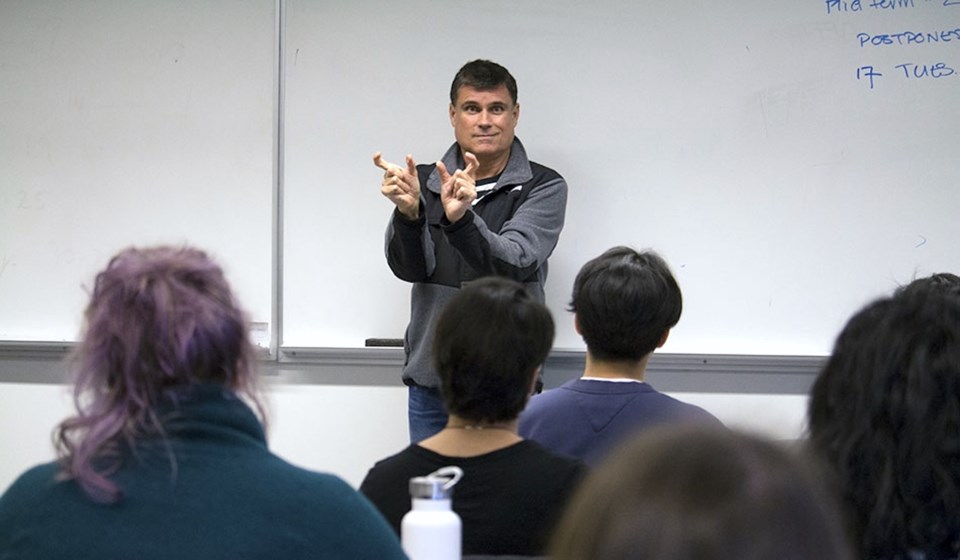Enthusiastic and expressive, Nigel Howard has risen in the ranks of public esteem since he first interpreted Dr. Bonnie Henry’s live, televised provincial COVID-19 briefings.
The Vancouver resident has communicated the complicated details around the pandemic to B.C.'s Deaf community. He's done so with an unmatched gusto that’s seen a Facebook fan page pop up in his honour.
As a United Nations Deaf interpreter, teacher, and treasurer for the World Association of Sign Language Interpreters, Howard is about to add another accolade to his growing list of accomplishments.
In September, he will instruct the University of British Columbia’s first accredited American Sign Language (ASL) course that students can take for credit towards their degrees.
Howard has taught a pilot course 'Topics in Linguistics’ to UBC’s extended learning students since 2018, but no ASL course has been made available to the rest of the student body.
Howard thinks the introduction of two ASL courses has a “huge” potential for impact. Specifically, he believes it could work to erase preconceptions society has about people who are deaf.
“A common misconception was that being deaf was an audiological or medical experience, rather than a cultural one,” Howard elaborated.
“Imagine the scenario where a doctor tells parents their child has 'failed' a hearing test, a negative connotation that can affect the parent-child relationship. We need to shift the lens – your child is healthy and deaf.”
UBC students in the medical and educational fields could benefit from a better understanding of Deaf culture, Howard said. Ultimately, it could lead to changes in how people who are deaf are portrayed in media and society.
“We’re offering language, not a disability,” Howard emphasized.
As of now, the classes are capped at 30 students – but with more interest from students, the number of ASL classes offered could grow to include higher-level courses, added UBC linguistics professor Strang Burton.




